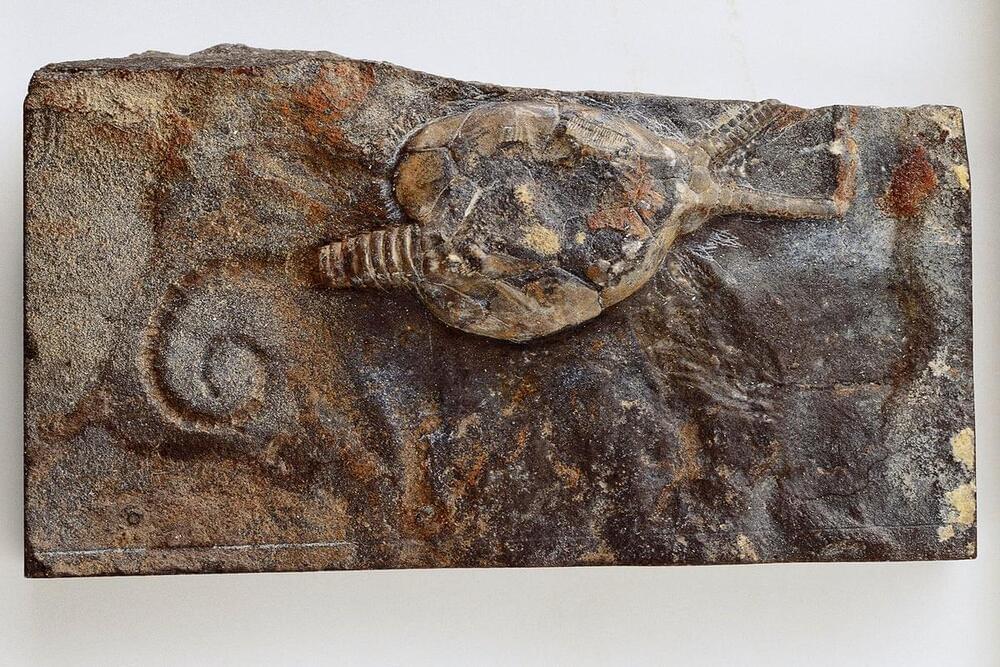Engineers and paleontologists teamed up to reconstruct an ancestor of starfish from the Paleozoic era and figure out how it moved.


Engineers and paleontologists teamed up to reconstruct an ancestor of starfish from the Paleozoic era and figure out how it moved.

Most things have a beginning and an end, including time itself. What was the spark that made it begin, and what will one day bring it to an end?
SpaceX Starship 25 and Super Heavy booster 9 launched to orbit on Nov. 18, 2023 from the Starbase facility in South Texas. Following the launch, the booster had a Rapid Unplanned Disassembly (RUD) shortly after separation.
Starship consists of a first-stage booster called Super Heavy and an upper-stage spacecraft known (a bit confusingly) as Starship. Both of these elements are designed to be fully and rapidly reusable. SpaceX thinks the vehicle will make the settlement of Mars — a long-held dream of company founder and CEO Elon Musk — economically feasible in the not-too-distant future.
When fully stacked, Starship stands nearly 400 feet (122 meters) tall. It’s the biggest and most powerful rocket ever built.
Broadcast Courtesy: SpaceX
Get ready to have your minds blown because Quantum AI is about to flip the script on the world! Imagine computers that don’t just crunch numbers but tap into the mind-bending power of quantum bits or qubits. Quantum AI isn’t just a fancy upgrade; it’s like giving our digital brains a cosmic turbo boost. From supercharging data processing to tackling complex problems like a quantum superhero, this game-changer is set to redefine what we thought computers could do. Get ready for a tech revolution – Quantum AI is the rockstar that’s about to drop a mind-blowing album on the world of computing! 🚀💻🌌
#brightside.
Animation is created by Bright Side.
Music from TheSoul Sound: https://thesoul-sound.com/
Check our Bright Side podcast on Spotify and leave a positive review! https://open.spotify.com/show/0hUkPxD34jRLrMrJux4VxV



SpaceX is targeting Saturday for the second flight of Starship. The company has received regulatory approval for the flight. The flight will feature the newly added hot staging ring, allowing the Ship to separate from the Booster while the Booster engines are still firing. The stack features multiple upgrades compared to the first flight, including 63 upgrades SpaceX submitted to the FAA to mitigate issues from the first flight. Ahead of the launch, SpaceX will close the road, evacuate the village and surrounding area, and clear the potential blast radius.
Booster 9 will attempt a soft splashdown in the Gulf of Mexico, while Ship 25 will attempt to fly around the earth before performing a reentry and hard splashdown in the Hawaiian area.
Window Opens: November 18th at 7AM CST (13:00 UTC)
Window Closes: November 18th at 7:20AM CST (13:20 UTC)
Mission: Starship’s second fully integrated test flight.
Vehicles: Booster 9 and Ship 25
Recovery: No recovery. Booster will attempt soft splashdown, Ship will not and instead will impact the ocean.
Stats:
· SpaceX’s 85th launch of the year and the 6th launch of the month.
· SpaceX’s 2nd space launch from Starbase.
· Starship will, once again, become the largest, most massive, and most powerful rocket every created breaking its own record.
Forum link: https://forum.nasaspaceflight.com/index.php?topic=57219.0
SpaceX’s launch page: https://www.spacex.com/launches/mission/?missionId=starship-flight-2
NSF Starship merch: https://shop.nasaspaceflight.com/collections/starship-orbital-flight-test.
NSF Launch Article: https://www.nasaspaceflight.com/2023/11/ift-2-launch/
⚡ Become a member of NASASpaceflight’s channel for exclusive discord access, fast turnaround clips, and other exclusive benefits. Your support helps us continue our 24/7 coverage. ⚡
LEVF are proud of what we’ve achieved in our first year of operation, and we hope you’ll agree. Click through for a summary of our work so far, as well as details on our 2024 plans — and please help us to make those plans a reality, by contributing to our end-of-year fundraiser!